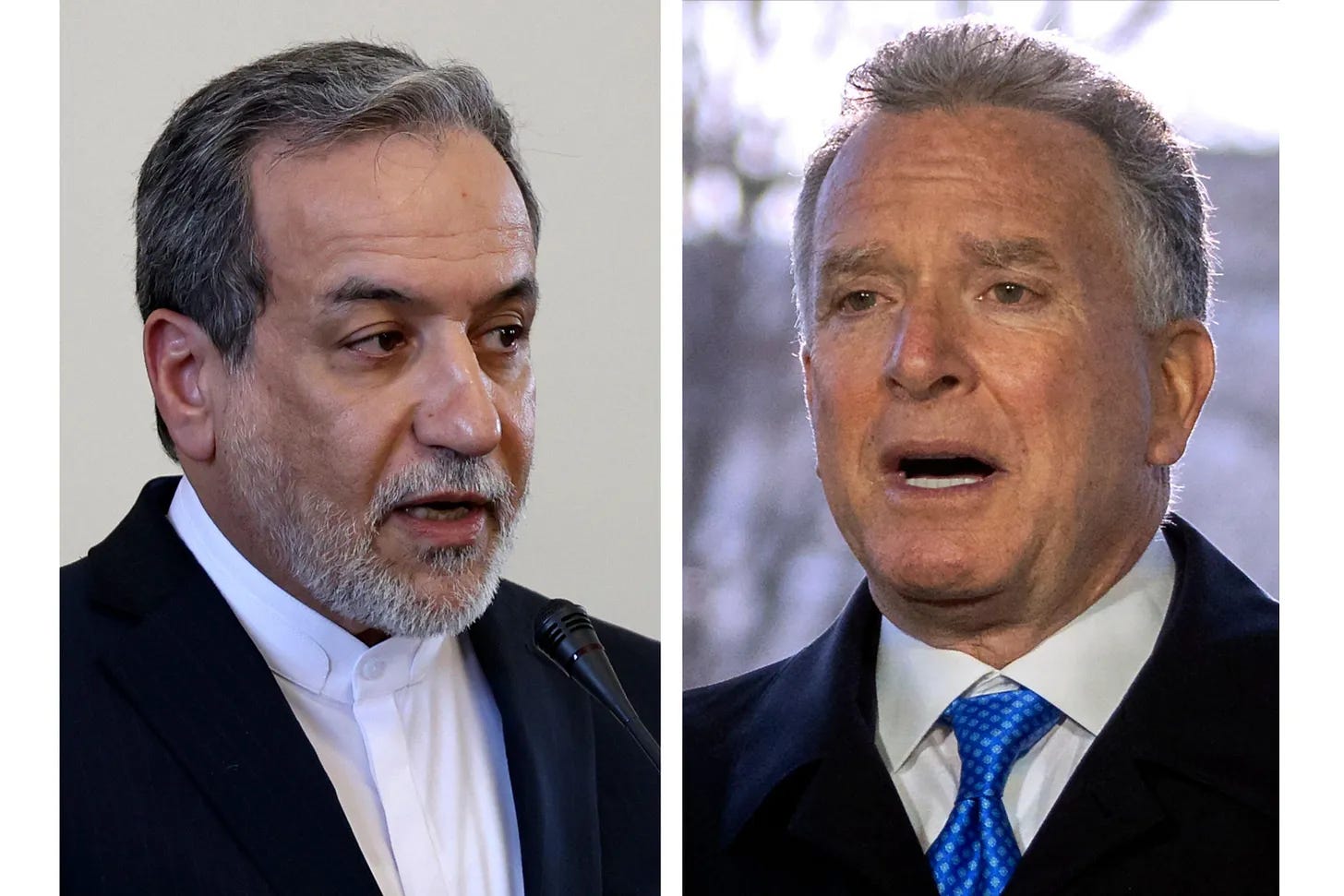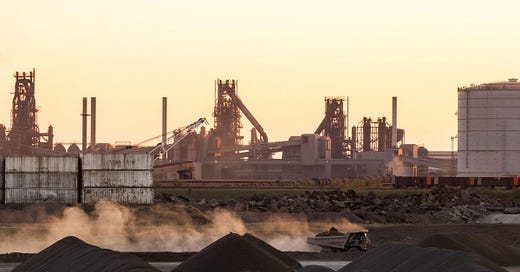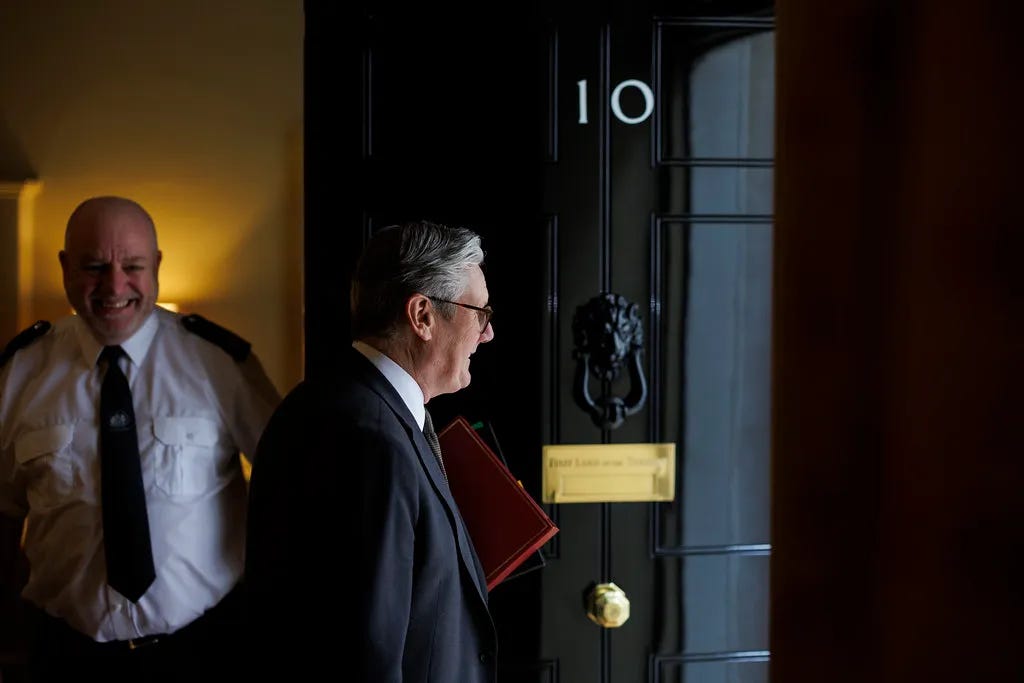
The UK parliament is being recalled for an emergency debate tomorrow as ministers fight to save Britain’s only surviving steel-making plant from imminent closure.
According to Downing Street, ministers are set to debate an emergency law that would give them immediate powers to control British Steel's plant in Scunthorpe to ensure it has enough raw materials to keep going. While the move stops short of fully nationalising the company for now, Downing Street added that “all options remain on the table”.
The crisis comes after the misleadingly-named British Steel, a Chinese-owned company, announced that it’s on the brink of shutdown - a shutdown that would end centuries of steel-making in Britain, with the loss of 2,700 jobs.
Its Chinese owner, Jingye, which says that its blast furnaces are "no longer financially sustainable”, has been in a standoff with the UK government over who will pay for the plant’s costly transition to electric arcs.
Jingye insists it needs more generous help from ministers than the £500m currently on offer if it is to manage the estimated £2bn cost of remaking the plant in Scunthorpe to produce “green” steel, which emits less CO2 than the current blast furnaces.
Why is the potential closure of Britain’s last steel-making plant being treated as a national emergency?
Because a domestic steel industry is deemed a matter of national security.
Steel is tied to defence. It is a critical component of a whole host of military equipment, from warships to helicopters to ammunition. Steel is vital too because it’s a foundational industry that supports countless other sectors including construction, housing, nuclear energy and the automotive industry.
Nervousness about Britain being left entirely reliant on foreign imports is thus unsurprising.
And, as Maggie Pagano wrote recently in Reaction, many are rightly questioning too “why the UK ever allowed such a vital strategic asset to be foreign-owned, leaving taxpayers at the mercy of international conglomerates”.
But is bringing British Steel back into public ownership the solution? Or is the UK’s steel industry already doomed?
In the early 1970s, the UK was the second-largest steel producer in Europe. Since then, no other country apart from Venezuela has seen its steel production fall faster than Britain. The UK currently produces just one per cent of global output.
The sobering reality is that the UK’s domestic steel-making has already shrunk almost to the point of irrelevance.
And, as Maggie also points out, it is an illusion to think we have an independent steel industry as it is. What is left of the industry is already reliant on imports of iron ore and coal, from countries such as Brazil.
All of which means the government faces a tricky decision. How far should it go to fight to save an undeniably vital industry? Or should it simply accept that Britain’s days as a proud steel-producing nation are already over?
If it opts for the nationalisation route, then it must, crucially, address the underlying cause of British Steel’s crisis.
While Trump’s tariffs on the metal sectors have dealt another blow to an industry already facing an uncertain future, they are not the reason why Jingye, which bought British Steel in 2020, has been suffering financial losses of around £700,000 a day.
The real problem is that steel production and processing is incredibly energy-intensive and the industry is being crippled by high electricity prices.
According to industry body UK Steel, power costs can represent up to 180% of steel producers’ Gross Value Added (GVA) in the UK. And, from 2023-2024, UK steelmakers’ energy costs (per megawatt hour) were almost twice that of their German and French competitors.
Government subsidies for British Steel are just a sticking plaster. The real problem that needs to be tackled is the cost of energy.
The government also faces the politically fraught task of reckoning with the role that green energy policies have played in increasing said costs. Steel plays an important role in Britain’s transition to a low-carbon economy since it’s a vital component in wind turbines and EVs. Yet, ironically, what is left of Britain’s steel industry is on the brink of collapse in large part due to the challenge of transitioning to a greener form of production that brings with it higher costs.
Caitlin Allen
Deputy Editor
ON REACTION TODAY
Tim Marshall
Iran has been severely weakened - no wonder it’s prepared to talk to the US

Neil Collins
Keir Starmer’s moment of destiny
Jenny Hjul
Harry is more at home in a war zone than in Britain
Gerald Malone
Staging Parsifal at Temple Church was a high-risk operatic paradox that paid off
ALSO KNOW
Witkoff in Russia - US special envoy Steve Witkoff met Vladimir Putin in St Petersburg today - his third meeting with the Russian president this year - as Donald Trump urged the Russian president to "get moving" on a ceasefire. So far, the US has failed to get Russia to agree to a full ceasefire with Ukraine.
UK economy rebounds - According to new ONS data, the UK economy grew by 0.5 per cent in February, more than predicted, amid a strong month for the services sector. Exports to the US also increased by £500m as businesses rushed to beat US tariffs.
Ukraine defence contact group meeting - Ukraine’s allies have pledged £18bn in new military support for Kyiv at a meeting in Brussels of Ukraine's allies. Germany's Defence Minister Boris Pistorius said peace in Ukraine appears "out of reach in the immediate future" given Russia's continued aggression.
Washington fires Greenland military base chief - Col Susannah Meyers, the head of America's military base in Greenland has been fired after she reportedly sent an email to staff telling them that Vice-President JD Vance's recent criticism of Denmark was "not reflective" of the base. The US military's Space Operations Command said Meyers had been removed due to a "loss of confidence in her ability to lead" while a Pentagon spokesman said "undermining" US leadership was not tolerated.
FIVE THINGS
The New Statesman on Scotland’s public spending timebomb
Why Beijing thinks it can beat Trump, in Foreign Policy
How Karoline Leavitt became Donald Trump’s secret weapon, in The Times.
New Scientist on the world's first baby to be born almost entirely by a machine.
What happens when video games leak into the physical realm, in BBC Future

















also Brexit was a disaster for the UK steel industry.
If the current geopolitical and economic uncertainties do not provide a sufficient case for greater resource independence and therefore the abandonment of an essentially performative but highly damaging set of “net zero” policies, the consequences of which have been studiously ignored, then nothing will.